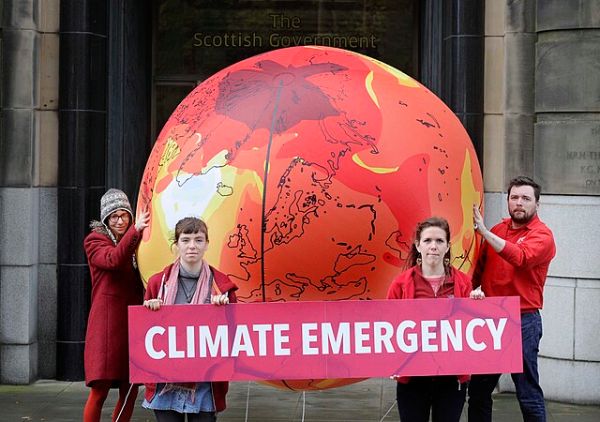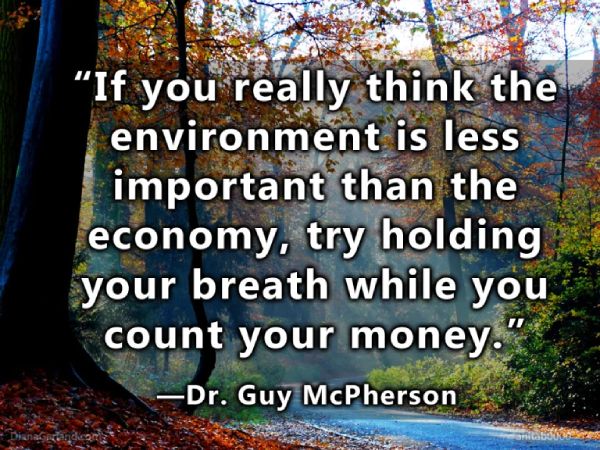Recently, on a Zoom call, I was accused of giving up. This often happens, of course. In this case, I was called a nihilist to my face. I appreciate the honesty, even though it’s misguided. As a reminder, a nihilist is one who believes life is not worth living. My approach, for my entire life, has been the opposite. I have been encouraging people to live fully, with intention and gratitude, for most of my 63 years.
We have known that Earth was in the midst of a Mass Extinction Event—at least the ninth, as I have reported previously in this space—since at least 1992. It was then that E.O. Wilson’s book was published. The Diversity of Life includes this line, on page 32: “Humanity has initiated the sixth great extinction spasm, rushing to eternity a large fraction of our fellow species in a single generation.”
Most climate scientists are familiar with the Intergovernmental Panel on Climate Change, the IPCC. As I have reported previously in this space, the IPCC was designed to fail when it was created during the Ronald Reagan administration. And yet, the IPCC has correctly concluded that climate change is abrupt and irreversible. Again, I provide the details, as provided by the IPCC more than seven years after I reached the same conclusion with a blog post at guymcpherson dot com on 20 June 2012.
In its 8 October 2018 report Global Warming of 1.5 Degrees, the IPCC concluded that Earth was in the midst of the most rapid environmental change in planetary history. Here’s the take-home line from this IPCC report: “even abrupt geophysical events do not approach current rates of human-driven change.” Yes, human activity is driving a rate of environmental change faster than when a large asteroid struck Earth about 65 million years ago, thus driving the dinosaurs to extinction. That’s how amazing we humans have become.
Following up less than a year later, the IPCC Special Report on the Ocean and Cryosphere was published on 24 September 2019. This IPCC special report concluded that an overheated ocean was responsible for the irreversibility of climate change.
I will start with a peek into the Northern Hemisphere summer of 2022. According to a paper in the peer-reviewed Nature Medicine, nearly 62,000 people died from excess heat in Europe. Italy and Spain led the way. This is nearly as many as died during the summer of 2003, when an abrupt switch to nuclear power induced exceptionally rapid overheating as a result of loss of aerosol masking. The paper points out that the last eight years have been the warmest on record, and 2022 was the fifth warmest year on record.
With that information-overloaded background, I turn now to a recent article in the renowned, peer-reviewed journal, Science. The article was published 2 August 2023 and titled, ‘We’re changing the clouds.’ An unforeseen test of geoengineering is fueling record ocean warmth. The subhead: Pollution cuts have diminished ‘ship track’ clouds, adding to global warming. The short version of this story is that high-sulfur ship fuel has been largely phased out, leading to a reduction in reflective clouds. As a result, the ocean is getting warmer. As an aside, this warming is separate from the El Niño Southern Oscillation, which is just getting started.
The initial paragraph from the paper in Science begins thusly: “The Atlantic Ocean is running a fever.” It goes on, with nothing but bad news: “Waters off Florida have become a hot tub, bleaching the third-largest barrier reef in the world. Off the coast of Ireland, extreme heat was implicated in the mass death of seabirds. For years, the North Atlantic was warming more slowly than other parts of the world. But now it has caught up, and then some. Last month, the sea surface there surged to a record 25o C—nearly 1o C warmer than the previous high, set in 2020—and temperatures haven’t even peaked yet.”
I’m sure you’ve seen recent headlines about our overheated planet. These include, for example, from the Independent in Europe on 20 July 2023, “European heatwave – latest updates as red alerts and record temperatures continue.” The article points to 44 C temperatures in Greece. Another headline in the Independent published the same day, 20 July 2023, asks, “Europe heatwave: Is it safe to travel to Italy, Spain, Greece and Croatia?” The latter article includes this subhead: “A deadly heatwave is sweeping Europe, with ground temperatures in Spain hitting more than 60 C.” As if it’s a contest among countries, this headline comes from 9 News in Australia, quoting the Associated Press on 18 July 2023: “Iranian airport hits unsafe 66 degrees on the weekend.”
Although it might seem like a minor example, The Guardian reported 39 C temperatures in northern Argentina. That story was published 3 August 2023 with the headline, “Winter is disappearing: South America hit by brutal unseasonal heatwave.” Here’s the subhead: “Buenos Aires records hottest start to August in 117 years, Chile sees highs towards 40C and Bolivia, Paraguay and Brazil also bake.” Here’s the lede: “Now should be South America’s bleak midwinter, but several parts of the continent are experiencing an extraordinary unseasonal heatwave that scientists believe offers a disturbing glimpse of a future of extreme weather.” The story reported 39 C temperatures in northern Argentina, where early August temperatures are typically less than 10 C. A 29-C difference is remarkable.
Of course, the effects of burning fossil fuels have been known for a long time. As reported in Common Dreams on 3 April 2023, Shell, one of the giants in the oil and gas industry, began collecting information about climate change in the 1960s. The company funded research and therefore knew that burning fossil fuels could lead to alarming climate change. Lest anybody is wondering why Shell and other fossil-fuel companies would knowingly push aside human health, here’s a clue from the article: “During Russia’s war in Ukraine, Shell has joined Big Oil peers including Chevron and ExxonMobil in making massive profits. After recording a record $40 billion profit in 2022, Shell announced that its former CEO, Ben van Beurden, took home $11.7 million last year, up from $7.9 million the previous year.” The article also includes information indicating that Shell has been ordered to reduce carbon emissions 45% by 2030. Maybe Shell knows that our time is short, and almost certainly does not include a judicial system in the year 2030.
As we have reported previously in this space, wet-bulb temperatures pose a significant threat to individuals of our species. Specifically, the long-held belief that a wet-bulb temperature of 35 C has been debunked by a 28 January 2022 paper in the peer-reviewed Journal of Applied Physiology. In this study, critical wet-bulb temperatures ranged from 25 to 28 C in hot, dry environments and from 30 to 31 C in warm, humid environments. This research focused on young, healthy adult humans. Temperatures being reported throughout the world now pose a significant threat to the survival of Homo sapiens, even young, healthy individuals.
Even the corporate media are reporting reasonably truthful information. Here’s the headline from ABC News in Australia on 4 July 2023: “Rising heat threatens Australia’s labour capacity in the Northern Territory.” Here’s the lede: “Scientists are warning northern Australia will soon be facing dangerous heat as the climate warms, to such a degree it could ‘impair’ the ability for labourers to work outside if effective strategies aren’t put in place.”
Australians have expressed additional concerns about rising heat. An article in the Guardian published 24 July 2023 questioned seven leading climate scientists to describe how they felt about the near future. The article is titled, “’No one wants to be right about this’: climate scientists’ horror and exasperation as global predictions play out.” A few responses indicate the dire situation we face, as experienced by Australians:
“I am stunned by the ferocity ...”
“This is what climate change looks like now. And this is what climate change looks like in the future, though it will likely continue to get worse.”
“History will judge them very harshly.”
“It makes me feel deeply frustrated … And with this comes deep resentment … despite the clear climate physics that have been known about for almost half a century.”
“What we are living through now is just the beginning.”
“Worryingly, it is clear that future extremes will again break records and cause even greater damage. In particular, this is because the damage in many cases is nonlinear …”
It’s not only Australia. Consider this headline from CBS News in the United States, published on 19 July 2023: “Record-breaking heat, flooding, wildfires and monsoons are slamming the world. Experts say it’s only begun.” Here’s the story in two sentences from Christopher Hewitt, head of international climate services for the World Meteorological Organization: “We are in uncharted territory and we can expect more records to fall as El Niño develops further and these impacts will extend into 2024. This is worrying news for the planet.”
Worrying news, reported from CBS News? That’s remarkable indeed. And yet, it continues.
Consider this headline from the Guardian on 19 July 2023: “‘We are damned fools’: scientist who sounded climate alarm in 80s warns of worse to come.” Here’s the subhead: “James Hansen, who testified to Congress on global heating in 1988, says world is approaching a ‘new climate frontier.’”
It’s almost as if Hansen, who called my idea of near-term human extinction crazy, recognizes that we face an uncertain future. Here’s the lede: “The world is shifting towards a superheated climate not seen in the past 1m years, prior to human existence, because ‘we are damned fools’ for not acting upon warnings over the climate crisis, according to James Hansen, the US scientist who alerted the world to the greenhouse effect in the 1980s.” The story continues to quote Hansen: “the world was moving towards a ‘new climate frontier’ with temperatures higher than at any point over the past million years, bringing impacts such as stronger storms, heatwaves and droughts.” Need I mention that we are already seeing stronger storms, heatwaves, and droughts? In this article, even Hansen indicates that, “things will get worse before they get better.”
The article goes on to quote Bob Kopp, a climate scientist at Rutgers University: “We quite possibly are already living in a climate that no human has lived through before and we are certainly living in a climate that no human has lived in since before the birth of agriculture.” The article also quotes Matthew Huber, an expert in paleoclimatology at Purdue University. Huber indicated that we are about to experience Pliocene-like conditions: “This is a radically different world.” It’s almost as if Huber has read the peer-reviewed paper I routinely cite from 26 December 2018. This latter paper, published by the Proceedings of the National Academy of Sciences, indicates that we are headed for a Pliocene-like climate as early as 2030. This paper relies on the IPCC’s Representative Concentration Pathways, which ignores the aerosol masking effect and dozens of self-reinforcing feedback loops.
It’s almost as if Barry Corbin was correct when he played the part of Ellis in the 2007 film, No Country for Old Men. The famous quote from Corbin: “You can’t stop what’s coming. It ain’t all waiting on you. That’s vanity.”
I hate to be the one to say it, but Corbin was correct: “You can’t stop what’s coming.” Neither can I. Unlike the vast majority of paid climate scientists, media personalities, and government figures, I am willing to tell the truth: We are in the midst of abrupt, irreversible climate change. Even the IPCC admitted as much, in the most important, most-ignored release of information in the history of our species.
Your medical doctor is paid to tell you the truth, rooted in evidence. Scientists could do the same if they desired. The loss of privilege will be enormous.
By the way, I’m not suggesting there is nothing we can do. Even though we cannot stop abrupt, irreversible climate change from destroying habitat for our species and most—if not all—species on Earth, we can be honest. We can, if we’d like, acknowledge the evidence pointing toward our near-term demise.
The personal costs will be great, as I know very well. Nonetheless, integrity matters to me. If I have time while I’m dying, I will undoubtedly ponder the importance of integrity in my life.
Life is short. Living well matters. Being honest matters. Loving others matters. Loving ourselves matters.
Amor fati. Love your fate. You get to live, against inconceivably long odds.









